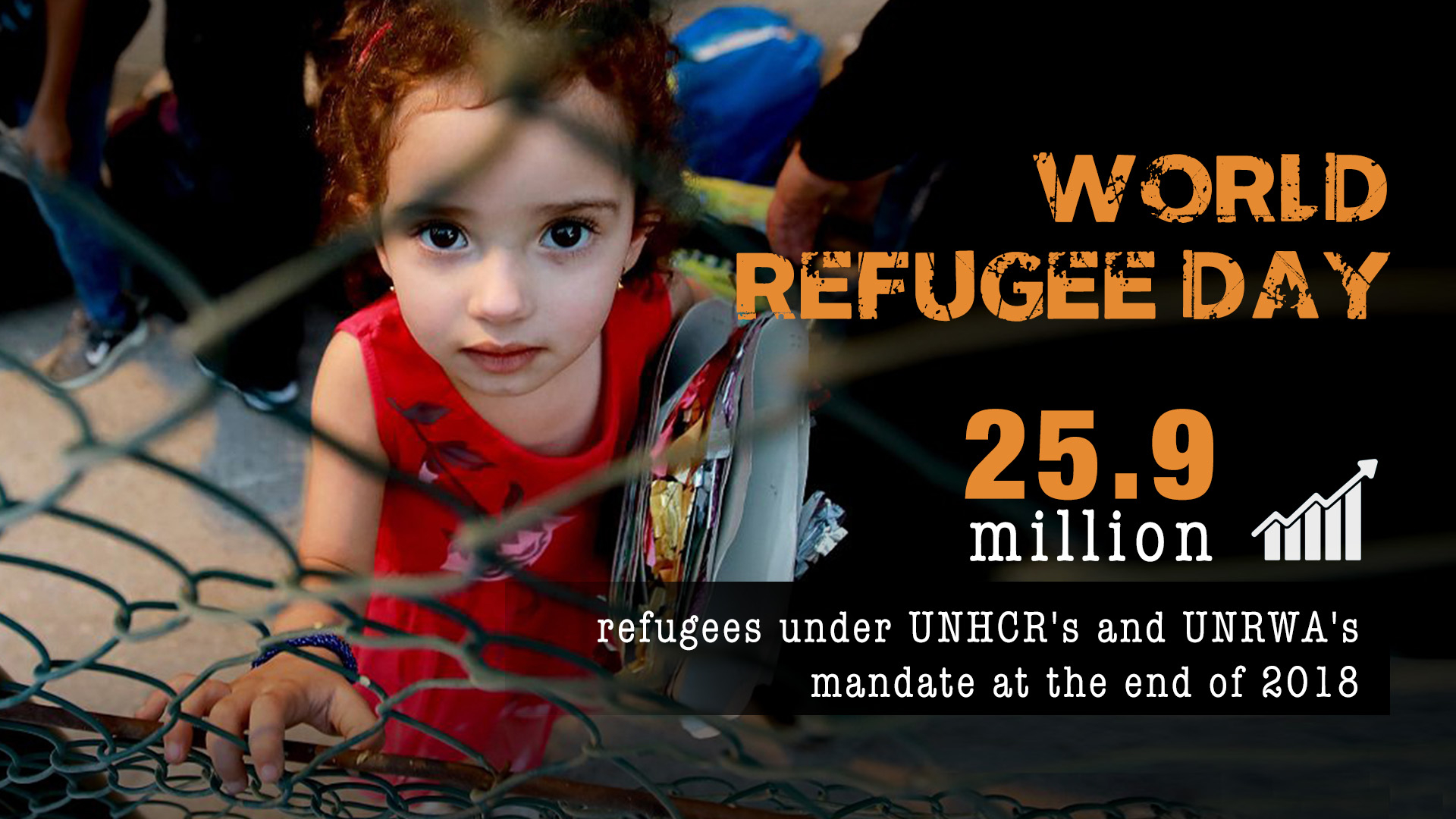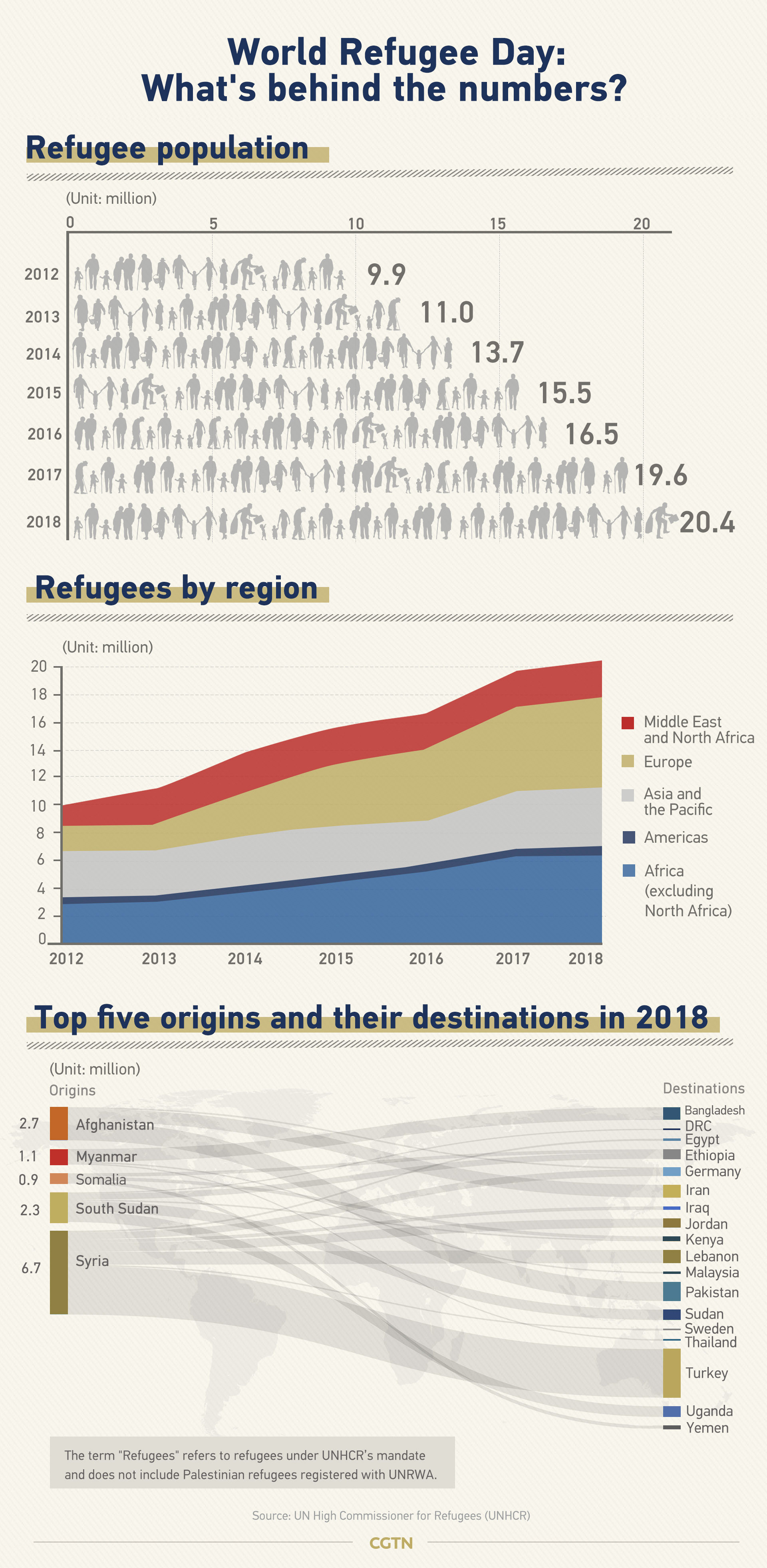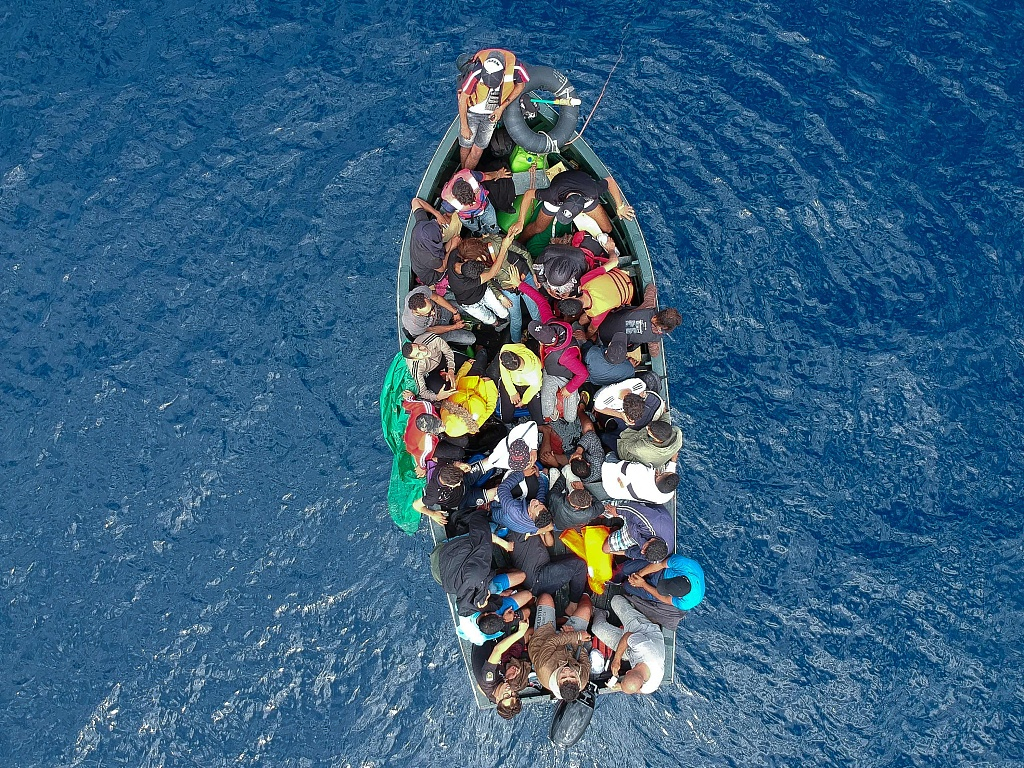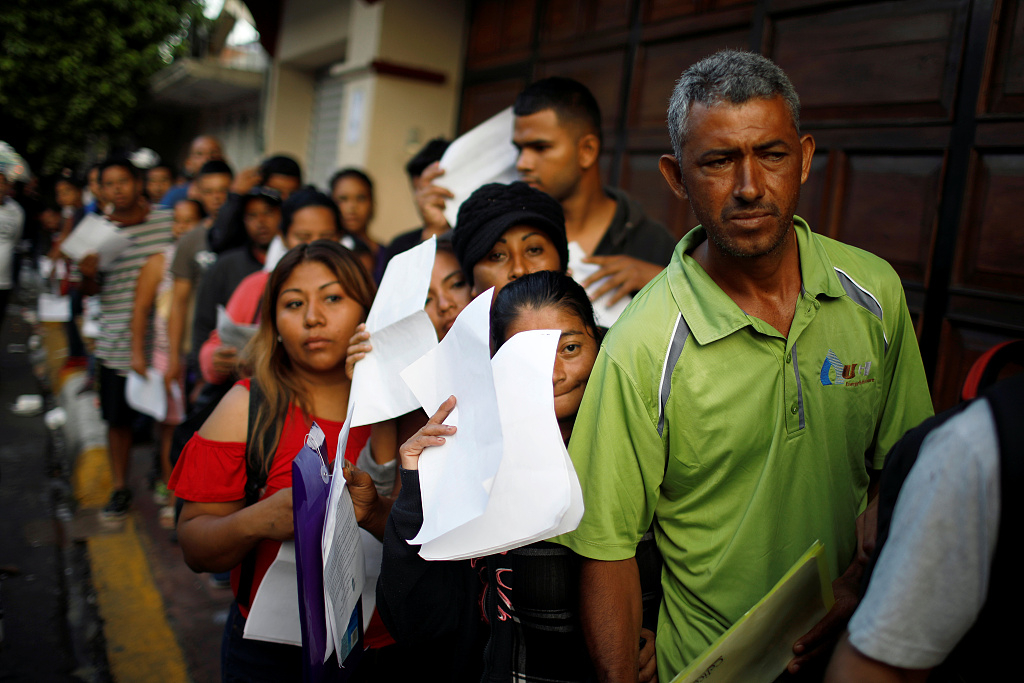

Sometimes people just don't know how important something is until they lose it. For those who are not refugees, they will never know how valuable and important a "home" is, and this is where the story starts.
Refugee vs. Migrant
"I'm a migrant but didn't have to risk my life on a leaky boat or pay traffickers. Safe migration cannot be limited to the global elite." - United Nations (UN) Secretary-General Antonio Guterres
According to the UN, refugees are persons who are outside their country of origin for reasons of feared persecution, conflict, generalized violence, or other circumstances that have seriously disturbed public order and, as a result, require international protection.
While there is no formal legal definition of an international migrant, most experts agree that an international migrant is someone who changes his or her country of usual residence, irrespective of the reason for migration or legal status.

Photo by CGTN's Du Chenxin
Generally, a distinction is made between short-term or temporary migration, covering movements with a duration between three and 12 months, and long-term or permanent migration, referring to a change of country of residence for a duration of one year or more, the UN noted.
Syrian refugee crisis
"We felt maybe it's our turn to die. But we didn't want to die. So we made up our minds to leave." - Sahar, Syrian refugee in Lebanon
Most of history's refugees have been the direct or indirect products of war, said Global Citizen writer Phineas Rueckert.
Among the countries where refugees come from, Syria is the biggest humanitarian and refugee crisis of our time, said Filippo Grandi, UN Refugee Agency (UNHCR) High Commissioner, with over 6.7 million people having fled the war-torn country since 2011.
Syrians have poured across their borders into Turkey, Lebanon, Jordan and Iraq since anti-government protests eight years ago spiraled into a full-blown conflict between rebels, Islamist militants, government troops and foreign backers.

A boat carrying migrants stranded in the Strait of Gibraltar, September 8, 2018. /VCG Photo
The long way
"Sharing my private family story with the world was not easy, but I go out and tell my story to inspire and remind people that the boy on the beach is one person only, and there are so many others who are suffering." - Tima Kurdi, aunt of the drowned Syrian boy
Refugees leaving their countries often take long journeys by car, truck, boat or even on foot to get to safety, BBC reported, adding that many times these journeys are dangerous and some people don't make it to their final destination.
They will be purposefully drowned by smugglers, such as 50 migrants from Africa were "deliberately drowned" in 2017 as smugglers "forced them into the sea" near the coast of Yemen, or even kidnapped by the mafia.
Even if they come through it, refugees who are seeking asylum where they may face further racial discrimination and similar problems caused by lack of acceptance.

Cuban migrants wait outside the Mexican Commission for Refugee Assistance in Tapachula, Mexico, June 14, 2019. /VCG Photo
Fate of refugees
"Day in, day out, we see resettlement's truly transformative impact." - Maurice Wren, head of the Refugee Council in the UK
While the number of refugees worldwide has risen to 25.9 million, surpassing last year's 25.4 million, there is still good news for those fleeing conflict and persecution.
The UK will resettle 5,000 more refugees as the government extended scheme beyond 2020 into countries outside Middle East and North Africa, the European Union (EU) admitted 32,700 refugees through resettlement program, and the World Bank made the decision to create a two-billion-U.S.-dollar financing window to support low income countries hosting large numbers of refugees.
No matter these efforts will solve the refugee crisis or not, one thing is for sure – each country must all think about what more we can do to help, not just on World Refugee Day, but every day.

Copyright © 2018 CGTN. Beijing ICP prepared NO.16065310-3
Copyright © 2018 CGTN. Beijing ICP prepared NO.16065310-3